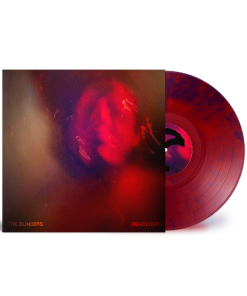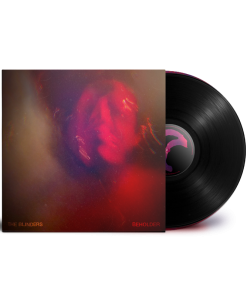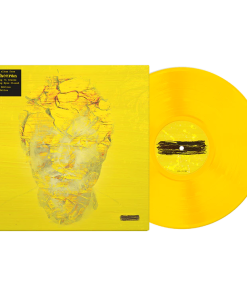From teddy grahams to pussy hats, California forest fires to cash cabs, the stuff of American nostalgia and horror adorns a personal reckoning on Christina Schneider’s triumphant third album as Locate S,1. With a name culled from a Daschel Hammitt noir novel, Wicked Jaw pulls from wildly disparate references and textures to survey the history of American pop music. Like Pat Benatar soundtracking an Adam Curtis documentary, the album trades in dramatic juxtapositions across its kaleidoscopic ten tracks. Only Schneider could pull off singing a line like “season finale 2020 death machine” as a soothing lullaby, but jarring contrasts echo the tumultuous personal journey woven throughout. “I was in hell … and loving it,” Schneider said of her childhood, describing a murky cocktail of sentimentality and despair. “It’s like when you escape the matrix and then you remember your wonderful time in the matrix.” The Athens, Georgia based songwriter, producer, and virtuosic pop connoisseur authored the album over two years while beginning treatment for childhood sexual abuse by a relative. “I was using these songs as an expression valve for all of these different parts (of myself) that I was trying to integrate,” she explained. The result is a surprisingly tender and often jubilant set of conversations with the ghosts of painful memories, Schneider transforming her metaphysical scars into gleaming armor as she redefines herself on her own terms.
Following 2020’s Personalia, an album Schneider created in collaboration with producer and romantic partner Kevin Barnes (Of Montreal) – where reviews often displaced credit for Schneider’s intricate electropop to Barnes – Wicked Jaw finds Schneider decidedly and unequivocally at the helm, as the album’s sole producer. It’s a stylistic departure from Personalia in many ways, beyond personnel. Spanning decades and genres from doowop to cold wave, disco to soft rock, Wicked Jaw has the vitality of full band tracking at its core. Recorded to a 24 track tape machine during a weeklong session in the summer of 2022, it features deft and magnificently wackadoo performances from players including Ross Brand (guitar, percussion), Jojo Glidewell (piano, synth, percussion), Zack Milster (bass, percussion, pedal steel), and Clayton Rychlik (drums, percussion, sax) among others.
Wicked Jaw both is and isn’t a pandemic album. The dystopic terror of COVID-19 is an omnipresent touchpoint in the songs, which Schneider began writing in the summer of 2020, but the virus functions as a gateway for interpersonal analysis and reflection. What does it mean to be an American in the 21st century? What does it mean to be a woman? What does it mean to be a survivor? Schneider digs tunnels into collective memory on songs like “Go Back to Disnee,” a devastating bossa nova track that could soundtrack an episode of White Lotus. “Under the blankets, into the plastic dreams / Into the comfort of parental regimes,” Schneider purrs with a delivery so gentle that you might not detect the venom seeping through. On this tune and others, Schneider’s exceptional songcraft is most evident through her ability to excavate the toxins lingering beneath the surface in a way where they begin to shine and radiate a strange beauty.
“Beauty throws darkness and pain into relief so you can see it more clearly,” Schneider said of this songwriting tendency. While her lyrics do a sort of time traveling alchemy on past wounds, the sonic palette of the record is the real time machine. The running joke in the studio was that Wicked Jaw should be called “Radio Free Christina,” since it felt like turning the radio dial from song to song. How else would we get an album that boasts both Dido and Thin Lizzy as musical references? But the breadth of its melodic toolkit is held together by the singularity of Schneider’s compositional voice. Although Wicked Jaw is among her most accessible releases yet, chock full of infectious hooks, these songs still feature what her bandmates call trademark “Christina-isms” – the odd metered phrases and unusual time signatures that keep the listener on their toes and the songs firmly rooted in a space of experimental sophistipop.
Lead single “You Were Right About One Thing” is a case in point. Composed with the aim of harkening classic Christine McVie hits, the easiness of this song for the listener belies an innovative underlying architecture, where complex rhythms and wild chordal leaps are somehow smooth as silk. Meanwhile, Schneider applies the same tender veneer to the song’s challenging lyrical content. “Wrote all my worst fears down when i conjured you,” she sings to a past lover who treated her badly. These memories aren’t recounted with resentment or anger, but with compassion for the ways that intergenerational trauma bears out on relationships, shaping the patterns we struggle not to repeat. “In the end, it’s like, ‘can I really hate you for hurting me when I chose you to hurt me?” Schneider said, explaining that the song came from a place of “trying to reconcile forgiveness for yourself and for the other person, so you can both grow.”
Wicked Jaw offers a similar therapeutic release upon repeat listens as it did for Schneider when she wrote it. It’s a portrait of commanding and loving resilience in the face of victimization and apocalyptic doom. The potency of these songs resides not in their grasping toward the heavens, seeking escape or transcendence, but rather from digging in the dirt, sitting with it, and really seeing the worms and rot and entropy in vivid technicolor. “This is about me, but I hope other people relate to it,” Scheider said. “I have all these emotional problems that make me react like a fucking monster, but that is also forged by my experience and there’s something there that I can be proud of, that’s part of my survival. I can’t just cut the head off – I have to integrate it into myself.”
TRACKLISTING
1. You Were Right About One Thing
2. Go Back To Disnee
3. Pieta
4. Heart Attack
5. The Hard Way
6. Danielle
7. Have You Got It Yet?
8. Blue Meaniez
9. Daffodil
10. Wicked Jaw
Fast Delivery and Professional Packaging
Our long-standing relationship with UPS FedEx DHL and other carriers around the world gives us the ability to provide various shipping options. Our warehouse personnel will pack all goods to our exacting requirements. Your goods will go through an extensive inspection and will be securely secured prior to being shipped. Every day we ship thousands of packages to clients from all over the world. This is a sign of our determination to be the largest online retailer in the world. There are distribution centers and warehouses in Europe and the USA.
Orders that contain more than 1 item are assigned processing periods in accordance with the item.
Prior to shipment, all purchased items will be thoroughly inspected. The majority of orders are shipped within 48 hrs. Delivery is expected to take between 3 and 7 days.
Returns
The stock is dynamic and we do not completely manage it because multiple parties are involved, which includes our factory and warehouse. The actual stock can fluctuate at any time. It's possible that the stock may run out after your order has been processed.
Our policy lasts for 30 days. Unfortunately, if thirty days have passed from the date you purchased the item, we will not be able to offer you a return or exchange.
The item should not be used, and it must be in the original packaging. The item should be in the original packaging.
Related products
Vinyl LP
Vinyl LP
Vinyl LP
Vinyl LP
Vinyl LP
Vinyl LP
Vinyl LP
Vinyl LP
Vinyl LP






































